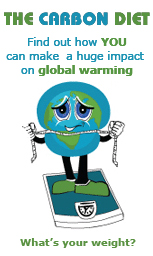Ask Ronit
 I Like Your Ponytail, A Story About Commitment
I Like Your Ponytail, A Story About Commitment
“I like your ponytail.” I said in a playful manner. “Ponytail?” he repeated in a thick French accent. There and then began the most extraordinary odyssey of my life.…
Avoid 90% of the Pesticides in Food, by Avoiding 12 Foods
Why should you care about pesticides in your food?For starters there may be as many as twenty pesticides on a single piece of fruit you eat.…
Dear Mrs. Black,It was January 1967 when this 11 year-old, frightened, little Israeli girl walked into your classroom for the first time. I had only arrived in the country two weeks before.…
With sex all around us, oozing out of our televisions, theaters, magazines, fashion, on the streets, one would think we are the most sexually informed, open and comfortable nation on the planet.”…
I’m sure by now you all have noticed the ongoing meltdown in the mortgage industry. The cause of this whole mess is a little bit complicated, rooted in both the structure of the mortgage industry, and human nature. I’ll try to explain both factors here in layman’s terms.…
Breaking old habits; Creating new Ones
We are mostly habitual beings. Webster defines habit as an acquired mode of behavior that has become nearly or completely involuntary.…
Navigation
Vitality
Risks: Study Ties Dirty Air to Blood Clots in Legs
By NY Times
The dangers of air pollution to one's health have been widely established. However, a new study now shows that air pollution also increases the risk for deep vein thrombosis, which are blood clots in the leg veins. For some reason, the risks are smaller in women, but for men they can be up to 70% greater, depending on the level of pollution in their community. Since it is difficult to avoid air pollution, a healthy lifestyle is now even more important.
High Mercury Levels Are Found in Tuna Sushi
By NY Times
Tuna Sushi lovers are putting their health at risk, according to a New York Times sample study. The Times bought Tuna Sushi from several restaurants and stores around New York City and had it analyzed by a laboratory. The results yielded levels of mercury so hight that the Food and Drug Administration could take legal action to remove the fish from the market. High Mercury levels are particularly dangerous for children and pregnant women, but recent studies suggest they may also increase the risk for cardiovascular and neurological problems in healthy adults. read more »
Work Stress Can Prove to be Lethal
By Earth Times
If you are under 50 and experiencing great pressure from your work, you are two thirds more likely to suffer from heart disease than individuals who don't experience high pressure, according to a new study by researchers at University College London. The study found that stressed workers seem to have a weaker nervous system controlling their heart. This system regulates the tone and rhythm of the heart.
Far out - Slovenia's hippie president
President Janez Drnovsek, frequently dressed in Indian clothes and sometimes playing the flute with laurel leaves in his hair, has cast off the trappings of power. After he was diagnosed with kidney cancer, Drnovsek, 56, left his presidential palace in Ljubljana, sacked most of his staff and moved with his dog to a mountain cabin near the village of Zaplana, where he grows organic food and bakes his own bread. read more »
Center for Future Health Awarded Funding for Proactive Self-Care Technology
A new proactive self-care technology will help prevent and detect avoidable health complications. The idea is to develop an integrated health care system based on consumer-health technology These advancements will allow users to prevent crisis and better manage daily routines, and will enable people to better make their own health management decisions..This represents a new view of health care, moving away from that of crisis-management.

 My Hero
My Hero We Are Sexual Beings
We Are Sexual Beings The Banking Implosion
The Banking Implosion









